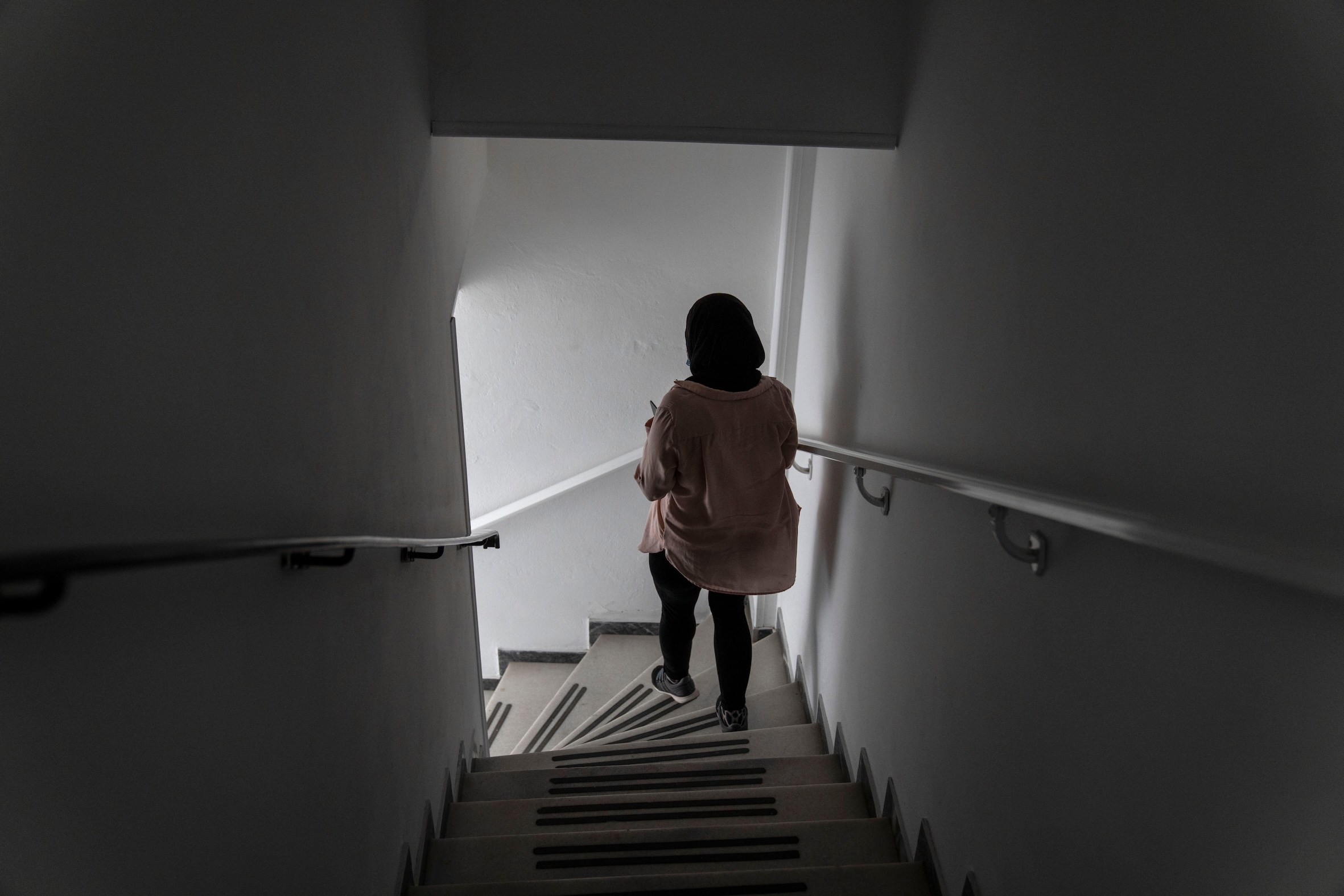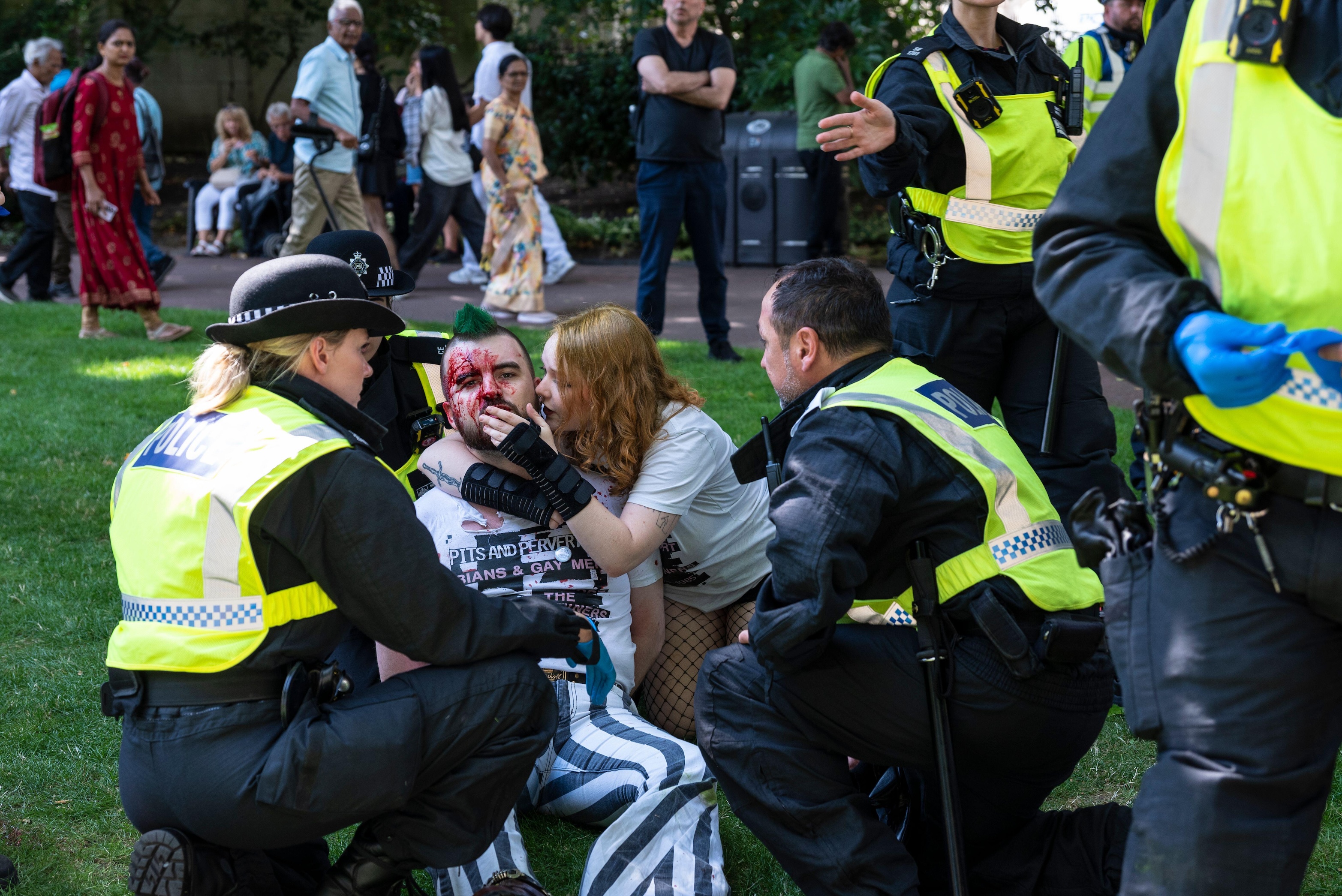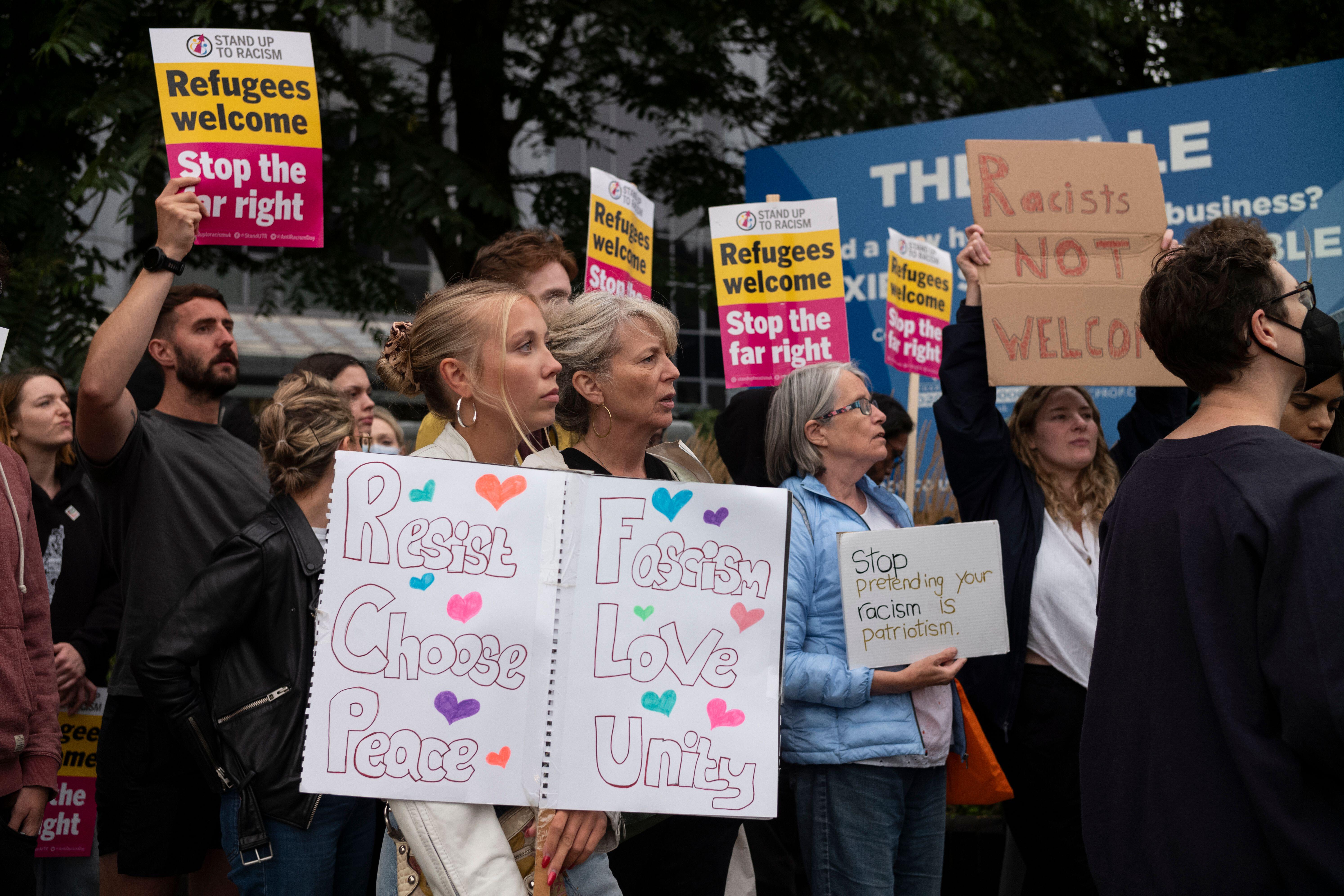“Is anywhere in the world safe?”: Asylum seeking women on far-right riots
The Lead speaks to three asylum seeking and refugee women about their experiences of the violence seen across the country in the past week.
When the far-right riots kicked off across the country last week, asylum-seeking and refugee women trembled in fear for their safety. They came to the UK to feel protected, but instead, feel physically threatened by a violent minority who don’t want them in the country.
Last week, Amira*, an asylum seeker in her early 30s living just outside of London, hid in her hotel room with her partner, petrified of what was happening outside of her window. “They came to our hotel and broke the wall and lots of other things like bikes,” Amira tells The Lead. “I was so afraid. We were locked in our room. The police did eventually come. One of them was injured.”
When Amira fled her home country in South Asia two years ago, she expected to be “able to live without being scared.” Muslims like Amira were heavily persecuted in her country, and she was in danger. “I was hoping the UK would stand with me,” she says, referring to her faith. Instead, now she hides away in her hotel room. “We are not allowed to go outside,” she says. “I feel like I’m in prison. I feel depressed all the time. I’m taking depression medicine, but this situation is too much. My medicine can’t help.”
Amira didn’t always feel unsafe in the UK, but she says the situation has gone “from worse to worse” since the riots started. “In my country, I always felt danger when I went outside,” she says. “Now, I feel the same things here.”
Staff at Women for Refugee Women, a charity supporting asylum-seeking and refugee women, have been in daily contact with many individuals across the country, scared and worried for their safety. “There is so much uncertainty,” Carenza Arnold at Women for Refugee Women tells The Lead.
One woman told staff at Women for Refugee Women she was afraid to travel. Another said she needed to go to the supermarket to feed her family but felt too scared to go alone. And another described being retraumatised by what she saw.
“It brings back memories of being attacked – the very reasons why she fled her country,” Arnold says, speaking of one of the women supported by the charity. The violence these women are witnessing is reminiscent of the violence they escaped, and it’s re-traumatising them, making them wonder if there is “anywhere in the world that is safe.”
Another asylum seeker in Cambridgeshire, Mary*, tells The Lead that these riots, although none have happened close to her, have reminded her of “bad memories” from the danger she felt before escaping from East Africa five years ago. “I felt like I was in a corner, like I wasn’t human anymore,” the 60-year-old says. “I’ve been unable to sleep.” Over the past week, Mary has been warned by a stranger on the bus to “be careful on the streets.” A friend told her to be careful if she comes “across anyone who has a mask or is wearing a hood.”
“I feel so vulnerable and scared,” she says. “Would people look at me and know who I am? I am a woman. I am Black. I am seeking asylum. Would I be safe? I looked around my neighbourhood, wondering if these people felt the same way. Are people looking at me and thinking I should be targeted?” Hearing that migrant and refugee charities might be targeted, Mary is concerned that she and other asylum-seeking women won’t have safe spaces anymore.
“I had hoped the UK would be a place of refuge where I would be able to rebuild my life and not have to go through this again,” she says. “I have already been through a lot. I thought I would find a stable life [in the UK], without violence and fear.”
Geraldine, a refugee living in London, felt the same kind of fear as Amira and Mary last week. “I’m terrified,” she tells The Lead. “I am someone who already suffers from PTSD, depression, and anxiety. But when these things [the riots] happened, it brings back memories of where you came from.” Geraldine fled Zimbabwe to come to the UK in 2001 for safety. She and others in her community in the All African Women’s Group and Black Women Against Rape left their countries fleeing “rape, persecution, and torture”.
“When it is happening here [in the UK], we don’t have anywhere we can run to,” she says. “We feel trapped.”In Whatsapp groups and on social media, Geraldine and her friends have been sharing words of warning to each other to stay safe by avoiding certain areas. The last few nights, Geraldine has struggled to fall asleep before 5 am. “I just can’t sleep,” she says. “I’m scared when I hear any sounds.”
Many individuals who have sought asylum or hold other immigration statuses and have not yet received a positive decision on their case are required to regularly report to their local Home Office reporting centre or a police station. Though now, asylum seekers say they feel unsafe attending these appointments amid the escalation in anti-migrant and racist violence.
Arnold is calling for the Home Office to scrap in-person reporting for asylum cases while the riots are ongoing. “Failure to do so from the Home Office could place individuals at risk of harm and abuse – as we know the far-right are targeting areas that people seeking safety frequent,” she says. “Ideally, most people should be able to report on the phone, but this usually has to be applied for, so there are still lots of people reporting in person.”
She believes the wider narrative on asylum seekers and immigration needs to change as well, pushing for a “complete shift from the current narrative of hostility and ensuring language, policy, and practice is based on compassion and care.”
“Dehumanising, divisive and racist language has become normalised in our policies and laws, by politicians and by certain elements of the media,” she says. “Words matter. We have seen the effects of such violence on our streets. When successive Governments and the media dehumanise people and consistently use toxic language of ‘invasions’ and ‘illegals’, the far-right becomes emboldened and legitimised. They must now take accountability.”
In 2012, Theresa May introduced ‘Hostile Environment’ policies, which were intended to make life difficult for immigrants in the UK. Undocumented migrants were cut off from using services, including the NHS and state support, and it was made illegal for them to work or for a landlord to rent them a property. Doctors, landlords, police officers and teachers were tasked with checking immigration statuses and people who looked ‘foreign’ were asked to show their papers to rent a home or get medical treatment.
These weren’t the first set of modern anti-immigrant policies, and they wouldn’t be the last.
Millions voted for Brexit, believing that doing so would reduce net migration from Europe. The Conservative government spent millions to attempt shipping migrants to camps in Rwanda and then had the idea of putting asylum seekers on a large barge on the water until their claims were processed. In 2023, the Illegal Migration Act was voted through in Parliament, which refused entry to the UK for anyone who arrived by ‘illegal’ means.
Press coverage referring to asylum seekers as ‘illegal migrants’ who were invading our shores was read by millions and has reportedly fueled far-right groups.
Arnold wants to see “dog-whistle politics” and “scapegoating of marginalised communities” immediately rejected by the current government and instead recalled immediately to name the UK’s violent riots what they are: racist, Islamophobic, and terrorist.
While Amira feels safer since the prime minister “spoke against” these riots, her local community has shown support for asylum seekers, and the police have taken action, she says she’d feel even more protected if she knew the government was taking “strict action” to find out why the riots have happened, who is involved, and how to ensure they don’t happen again in the future.
Mary, meanwhile, wishes the government would publicly name the riots as racist and Islamophobic and put things in place to stop misinformation from spreading on social media. “The language which has been used to talk about people like me is so toxic and has been for years,” she says. “It’s like putting poison in food and then letting people eat it.”If Parliament was recalled to decide on a course of action, and the public continues to show solidarity, Mary says she would feel safer.
On Wednesday evening, as thousands turned up in cities and towns across the UK, the women said they finally felt a glimmer of hope. “Though these attacks have been scary, the resistance has been amazing,” says Geraldine. “People are coming out to oppose the fascists. It’s very encouraging. There is still hope.”
*names have been changed
Image credit: Russell Watkins/Department for International Development
The Lead is now on Substack.
Become a Member, and get our most groundbreaking content first. Become a Founder, and join the newsroom’s internal conversation - meet the writers, the editors and more.





